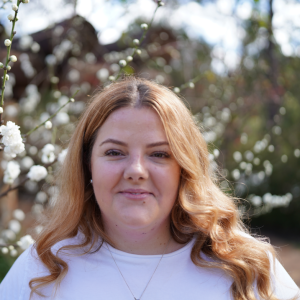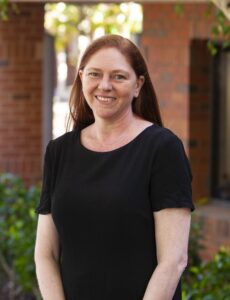AACBT WA Masterclass: recovery from self-injury
- Kate Tonta
- Penelope Hasking
Supporting clients in recovery from self-injury
Presenters: Dr Kate Tonta1,2,3 and Professor Penelope Hasking1
1Curtin University, 2enAble Institute, & 3Centre for Clinical Interventions


Learn about what recovery from self-injury looks like and how to support clients in their recovery journey using a person-centred and strengths-based approach.
Understanding why people start and continue to self-injure is important background knowledge for clinicians working with clients who self-injure, yet it is equally important to consider what people with lived experience of self-injury tell us important in their journey of recovery.
There is a wealth of research that helps us to understand not only how and why people start to self-injure, but how and why they stop self-injuring. Clinicians have a challenging but important job to do when supporting clients in their recovery journey.
This presentation will help clinicians build confidence in working with self-injury, by providing brief background knowledge on the social, cognitive, and emotional factors related to self-injury, before focusing on how we can support clients by viewing their recovery in a realistic way and building upon existing strengths.
Of note, we will introduce a new framework for understanding self-injury recovery that goes beyond cessation of the behaviour to consider issues of particular importance to people who self-injure. Drawing on lived experience voices we emphasise that recovery is a non-linear and individual process. Rather than focussing on cessation of self-injury we advocate for consideration of other important factors such as: realistic expectations for recovery, ongoing thoughts and urges to self-injure, self-efficacy to resist urges and engage in alternate coping strategies, the meaning of scars and navigating disclosures of self-injury, and moving toward self-acceptance. Drawing on CBT approaches we will offer practical tips and an opportunity to practice how this framework can be applied in practice.
About this event:
Masterclass including didactic content, collaborative case exemplars, and roleplays.
Key Learning Objectives
- Gain an understanding what recovery from self-injury can look like
- Develop person-centred skills to support clients in a recovery journey
This masterclass is designed for those with basic familiarity – attendees will be assumed to have a casual familiarity with topic area (e.g., treated one case).
Duration & Format / Training Modalities
This workshop has approx. 2 hours CPD, and morning tea is included in your registration.
Doors open prior to the 10am start, and the expected finish is 12:30pm.
References – readings
- Lewis, S.P., & Hasking, P. (2021). Self-injury recovery: A person-centred framework. Journal of Clinical Psychology, 77, 884-895.
- Lewis, S.P., & Hasking, P. (2019). Rethinking self-injury recovery: A commentary and conceptual reframing. BJPsych Bulletin, 1-3.
- Gray, N., Hasking, P., & Boyes, M. (2021). The impact of ambivalence on recovery from non-suicidal self-injury: Considerations for health professionals. Journal of Public Mental Health, 20, 251-258.
AACBT members have free tickets, but MUST book to reserve their place.
Non-members can join now and gain all of the other advantages of AACBT Membership!
There are no early bird rates for this event and please note that there are no door sales possible.
Please contact info@aacbt.org.au for more information.
COVID Safety:
Please note, the venue will be following all relevant Public Health Orders and checking delegates as per their obligations. Density, and mask requirements will be in line with relevant government guidelines. As per all events, please do not attend if you are unwell.
If you are required to cancel your attendance owing to a COVID isolation, please contact us for a full refund or ticket transfer.




